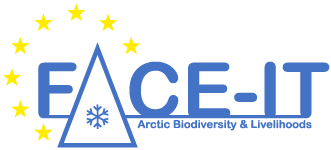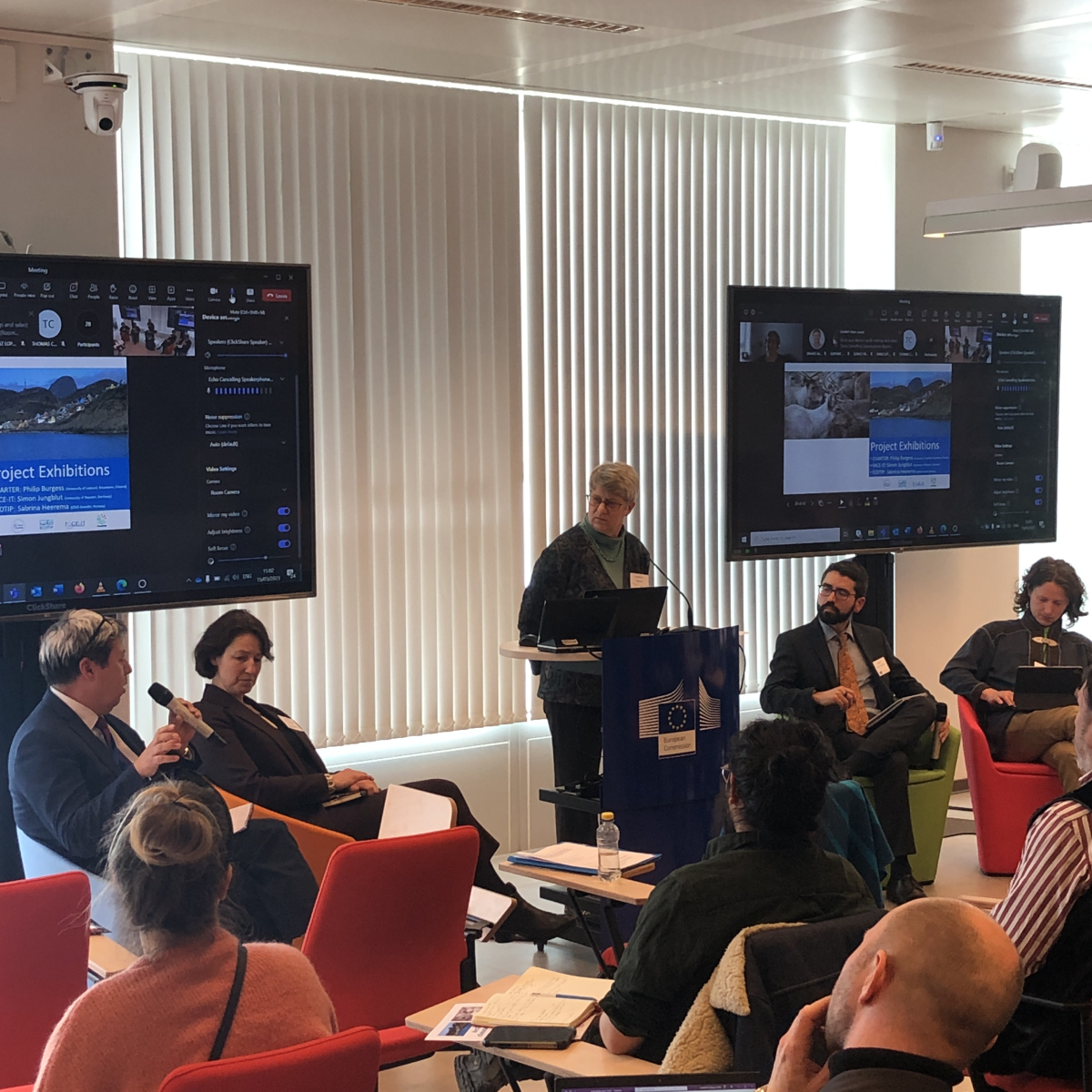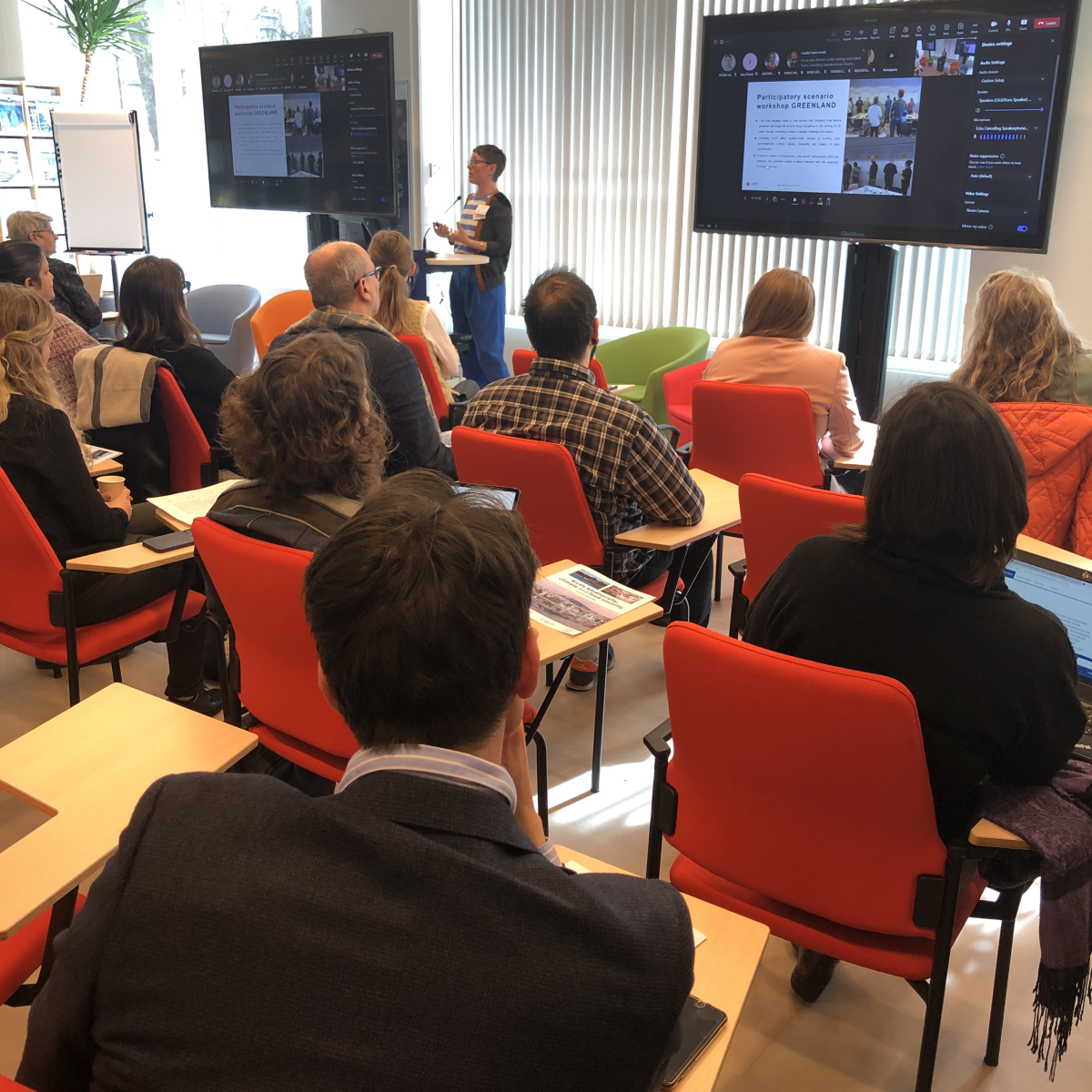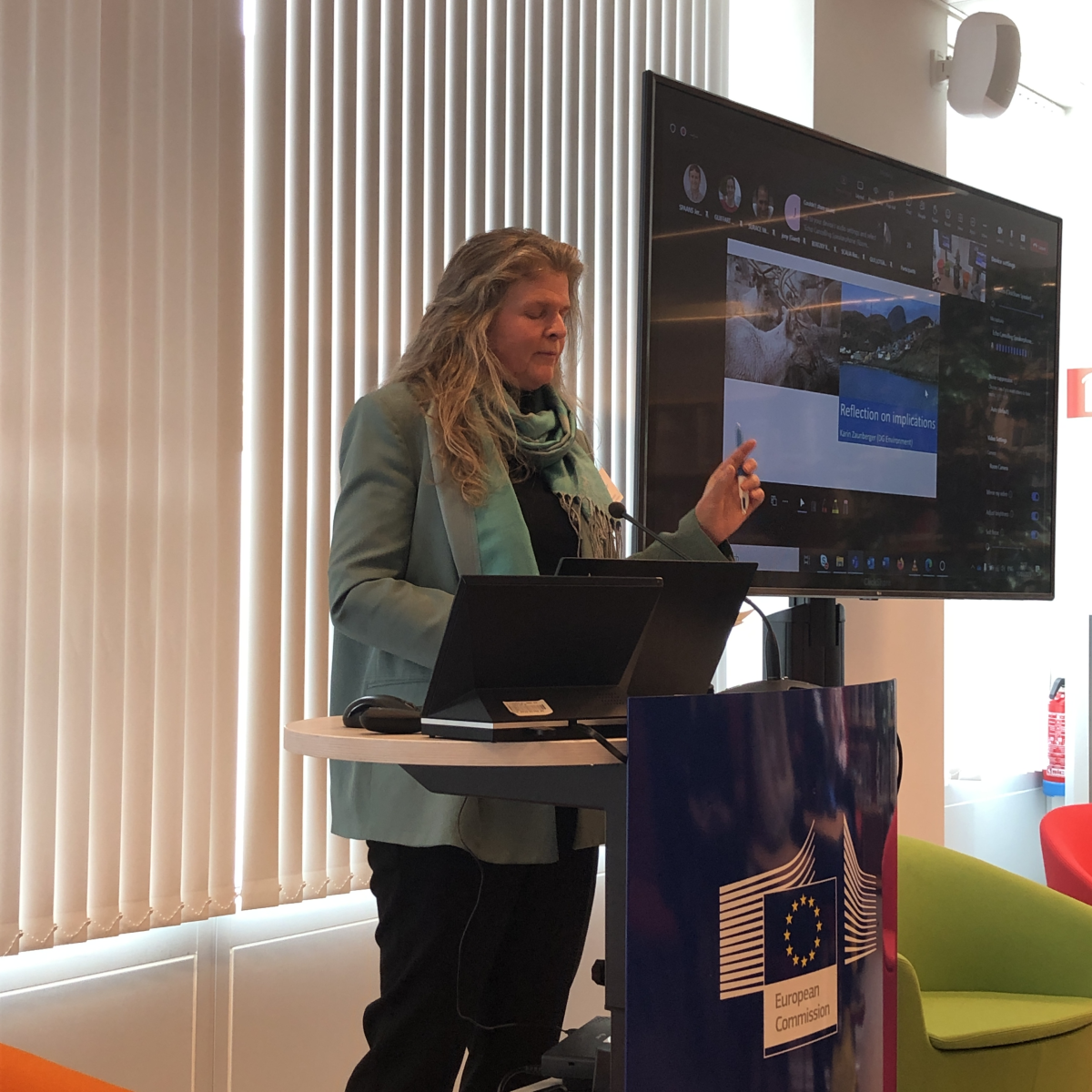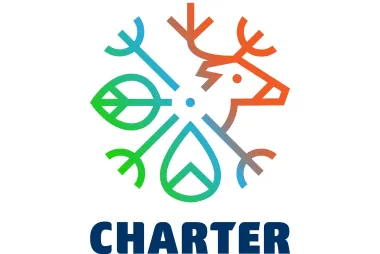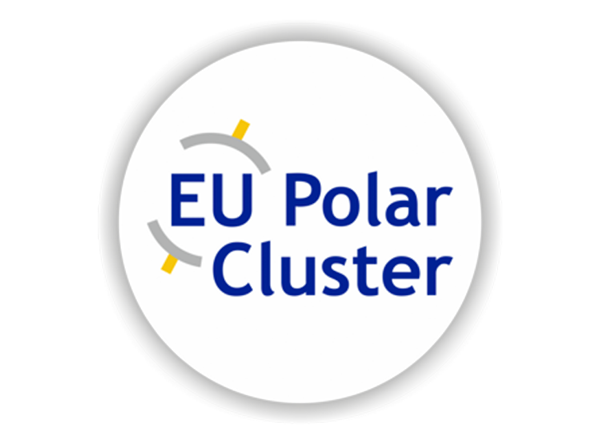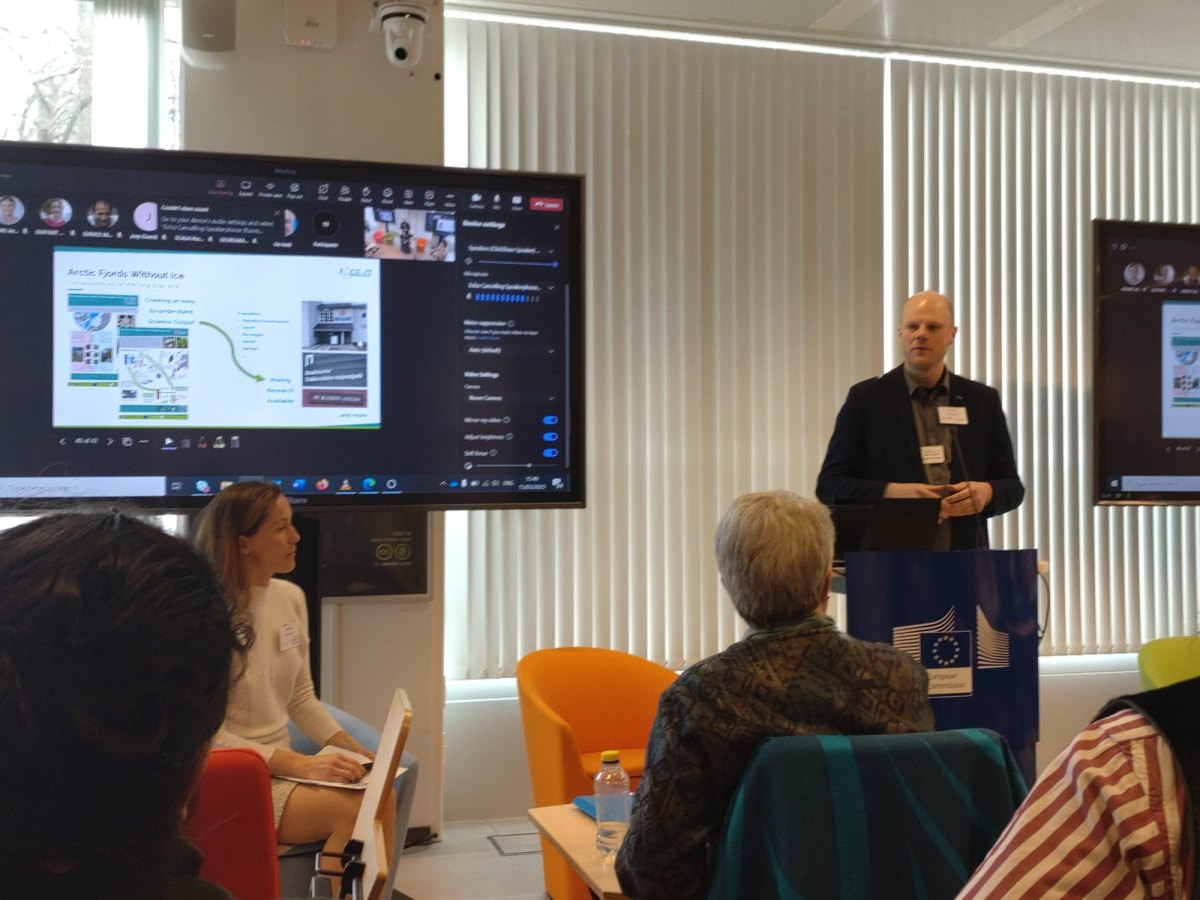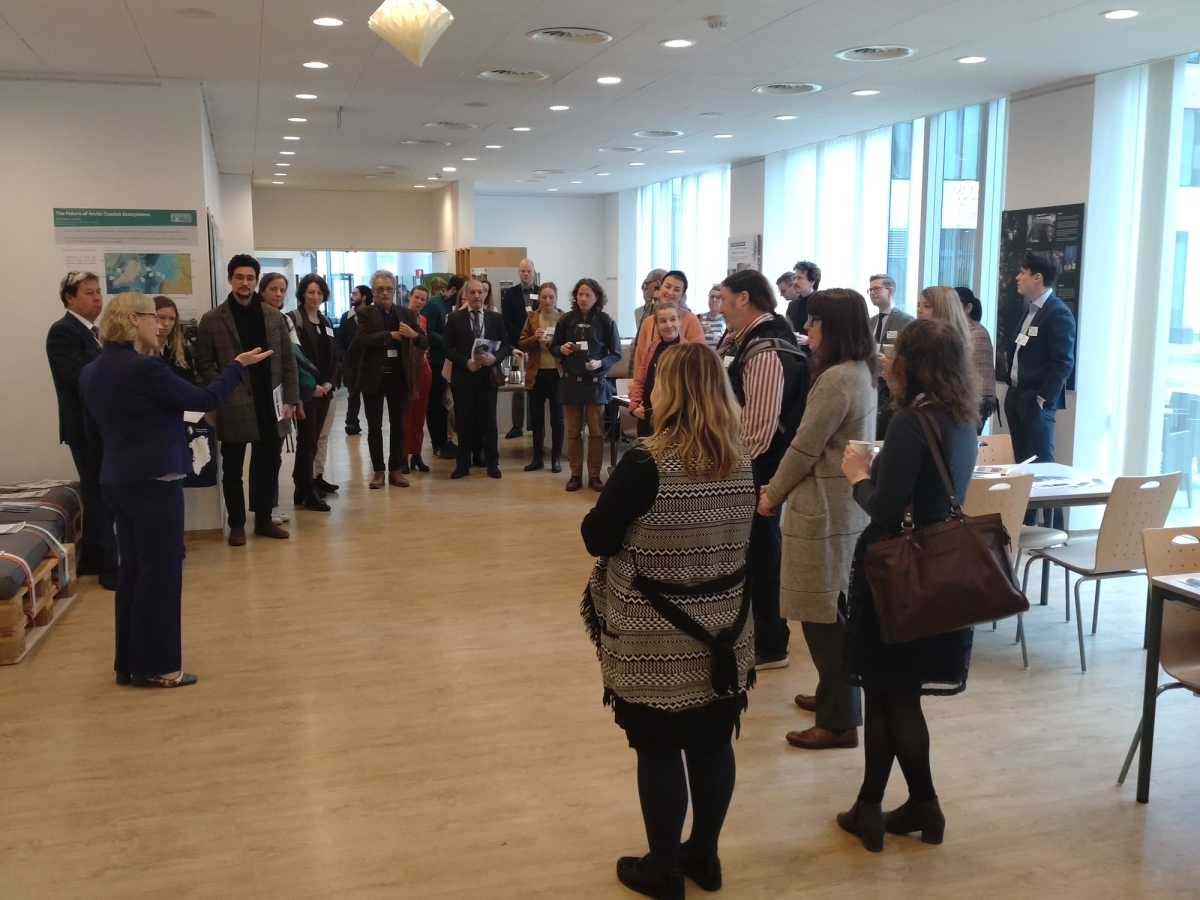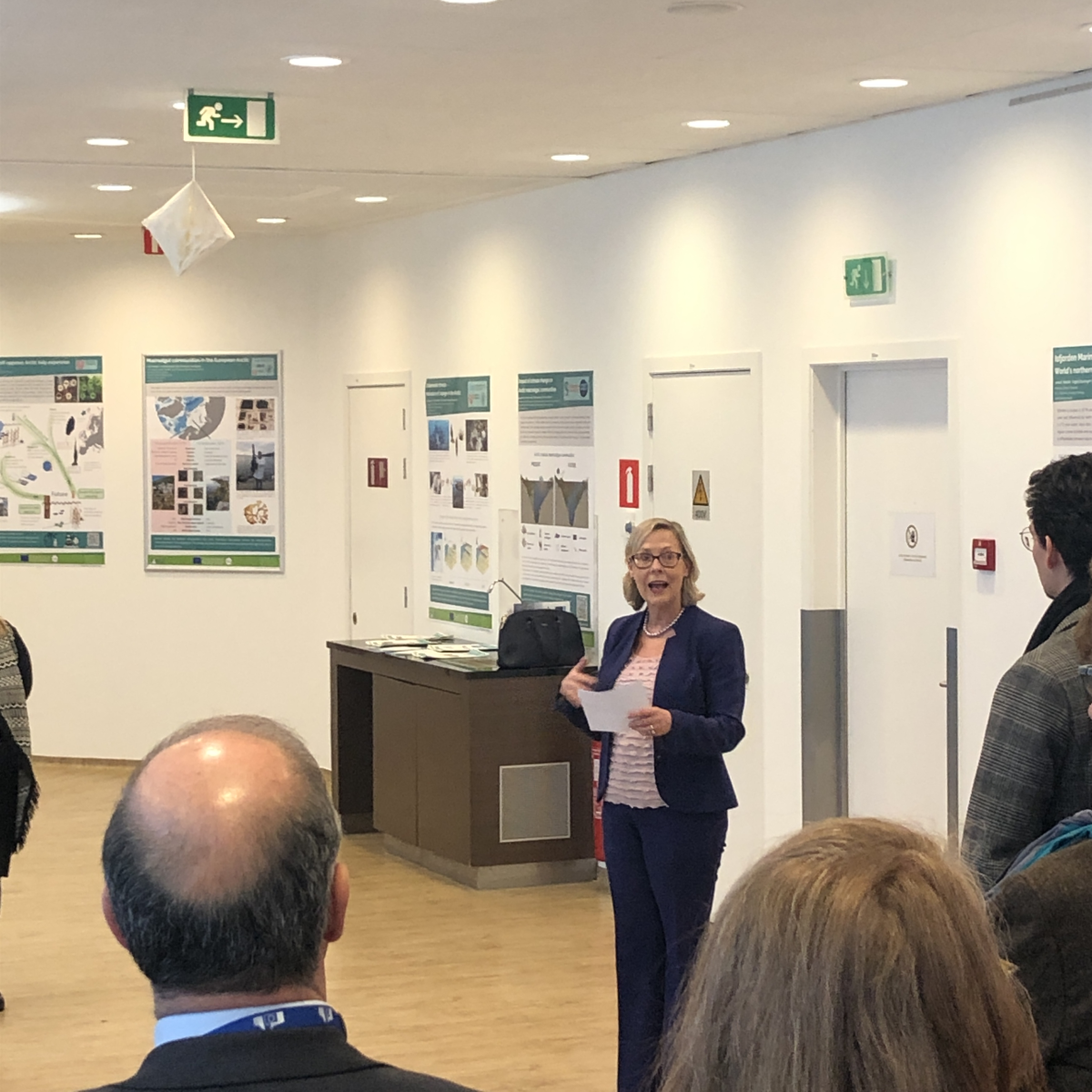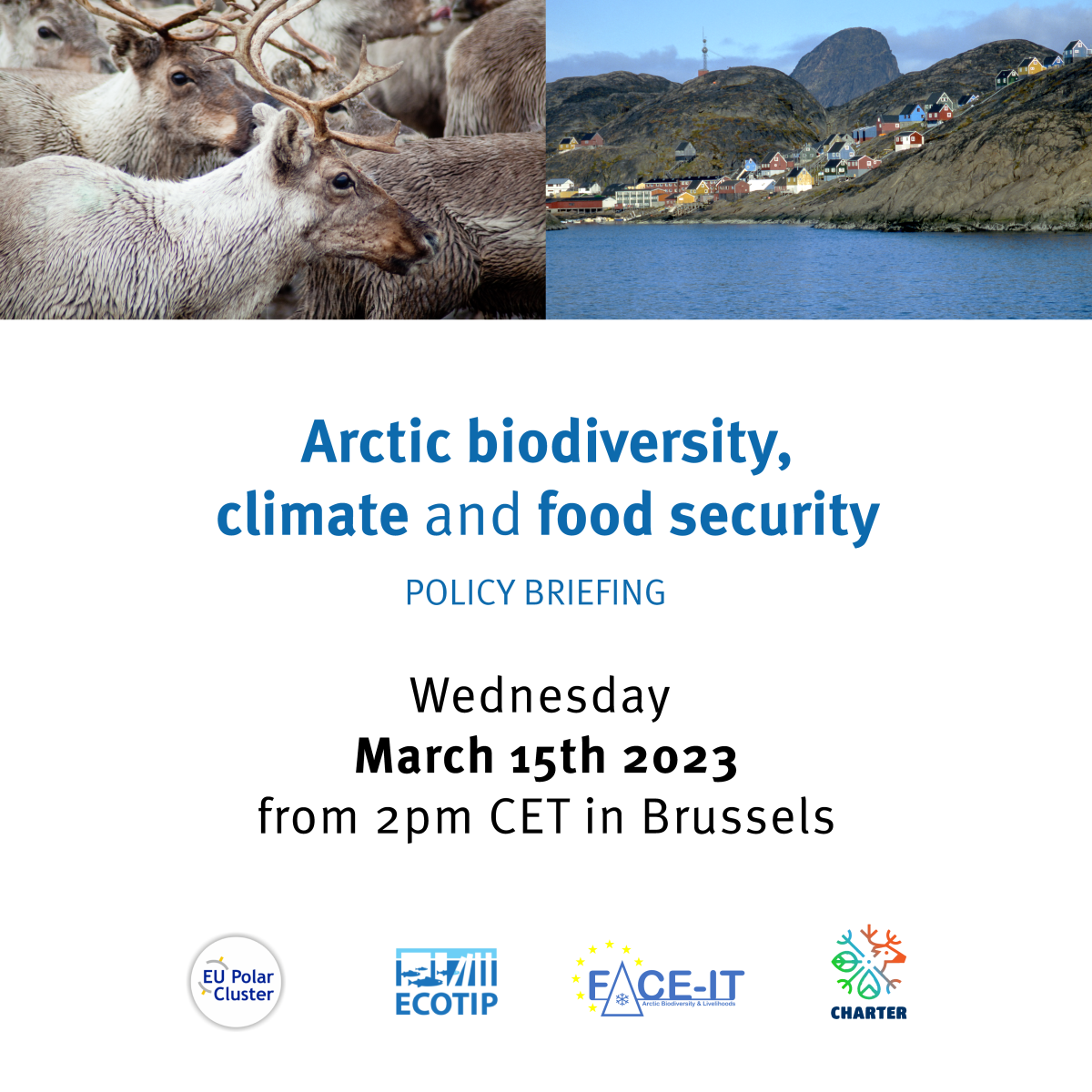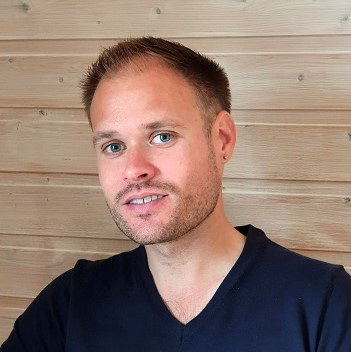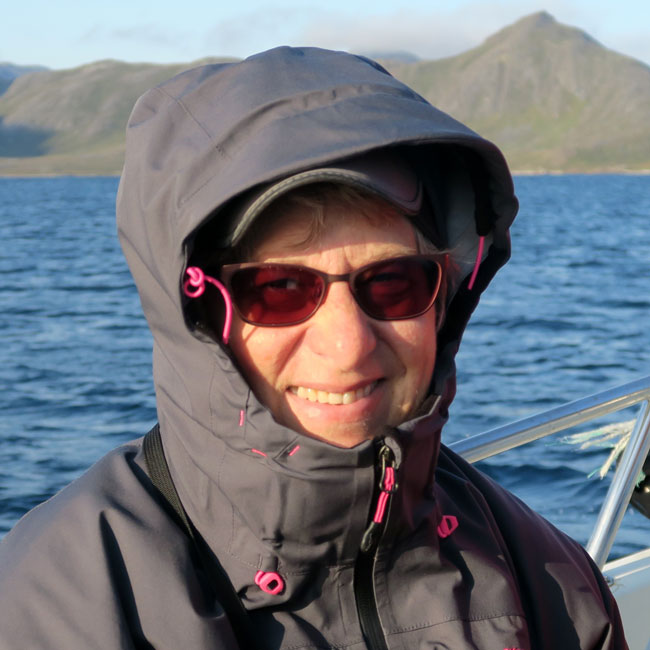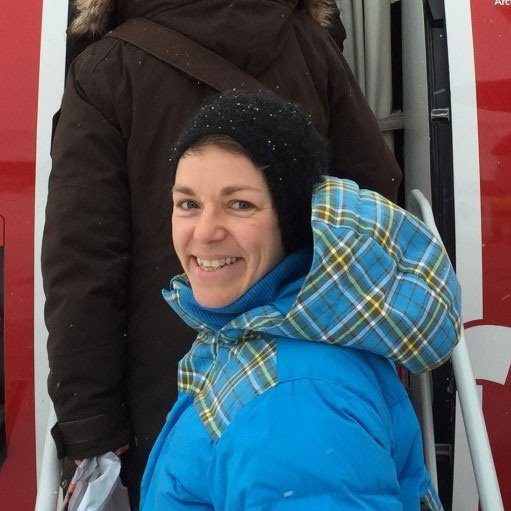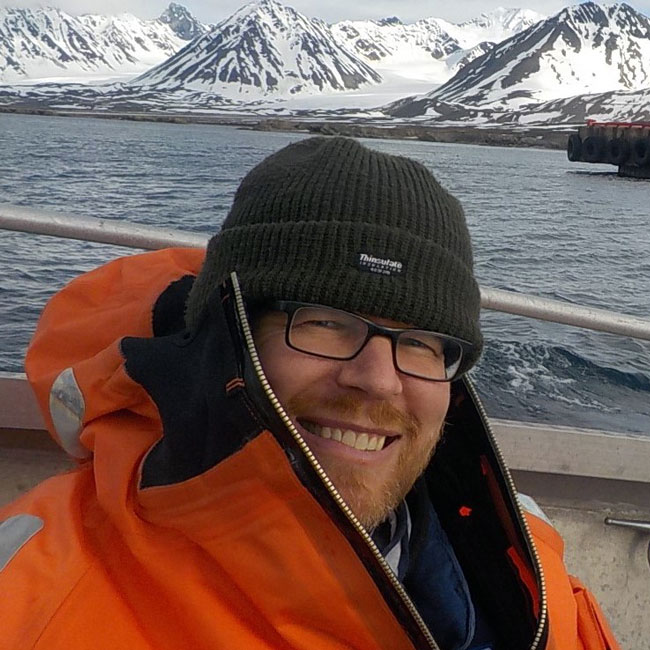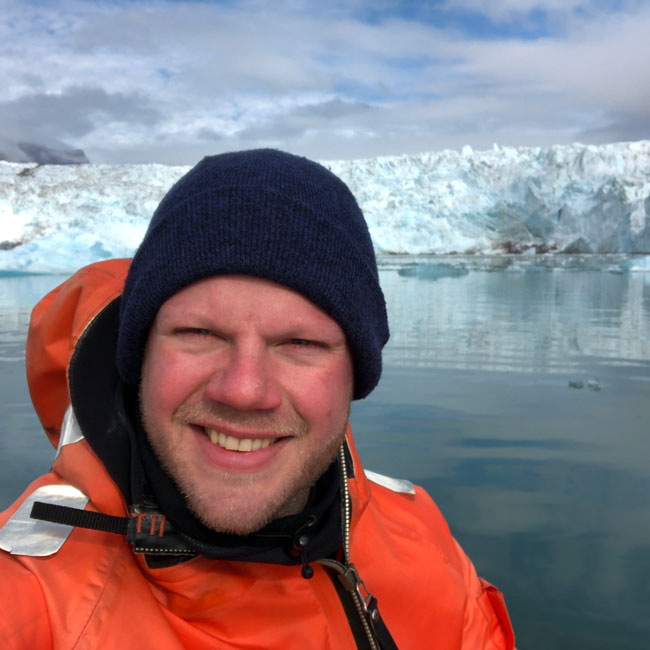Successful Policy Briefing "Arctic Biodiversity, climate and food security" in Brussels
[Published 21 March 2023]
Report by Julien Lebel (Senior researcher at Nordland Research Institute, Norway)
CHARTER, ECOTIP and FACE-IT, three EU-funded projects that are researching on biodiversity in relation to ice loss in the Arctic, organized jointly with the EU Polar Cluster a policy briefing in Brussels on 15 March 2023. The meeting was entitled “Arctic biodiversity, climate and food security” and constituted a useful opportunity to share preliminary findings from these projects and initiate a discussion between policy makers and researchers. Renuka Badhe, the Executive Secretary of the European Polar Board, chaired the meeting, while 40 people were present in the room and another 30 followed online.
After a welcome address of John Bell (video), the Director Healthy Planet (Directorate-General for Research & Innovation) who stresses the importance for the European Commission to learn from the results of EU-funded projects, researchers from the three projects presented some important findings.
- Mariana García Criado (University of Edinburgh, United Kingdom) who works in the CHARTER project reminded that 20% of European land are located in the Arctic, a region that is warming up 3 to 4 times quicker than the rest of the planet. As permafrost is thawing, more CO2 that is stored in the ice is being released in the atmosphere, a process that can be stopped but not restored. In the meantime, extreme weather events have strong impacts on local livelihoods, and particularly reindeer herding that has an important role in mitigating climate changes. Therefore, dialogue with and involvement of local and Indigenous communities are essential in new governance practices. What happens in the Arctic does not stay in the Arctic, and what happens in Europe has repercussions in the Arctic.
- Carina Ren (Aalborg University, Denmark) who works in the FACE-IT project provided insights regarding the impacts of tourism in the Arctic. In Greenland, there is currently a strong interest in developing this sector, but this needs to be balanced with environmental considerations. It is, therefore, important to shift from a “more tourism” approach to a “better tourism” one. In the case of Svalbard, tourism is already a significant activity. Yet, a more qualitative approach is needed too as pressure on the environment is getting stronger in fragile areas. Beyond environmental aspects, workshops in local communities highlighted that many people are concerned about increasing flows of visitors and the impacts for their daily life, but also situations of conflict regarding land-use. Current regulations are not adapted to growing numbers of visitors in remote areas, while societal, climate and environmental changes are closely interlinked.
- Rikke Becker Jacobsen (Aalborg University, Denmark) who works in the ECOTIP project underlined the importance of fisheries for many communities in the Arctic, particularly in Greenland. Local and Indigenous peoples have valuable information about the ongoing changes when it comes to both offshore and coastal fisheries. In the former case, relocation of fish stocks and bycatch of new species is reported by many fishers, while in the latter case, increased run-off, variability of access to certain areas due to unstable ice cover, and missing arrivals of certain fish species over the years are causing challenges. The ongoing “borealisation” of fish species in the lower Arctic is having consequences for fisheries, and, thus, there is a need to adapt regulations to these changes.
These presentations were followed by a panel discussion that was moderated by Annika Nilsson (Nordland Research Institute, Bodø, Norway). Five panelists representing different perspectives were invited to share their thoughts about ongoing changes and challenges in the Arctic, the EU’s role and how to link existing knowledges between local and Indigenous peoples, scientists, and policy makers.
- Josephine Nymand (Chair, Greenland Research Council) mentioned that longtime series are important to be able to predict the environmental changes and their effects. Moreover, it is necessary to expand the scale of analyses to gather data and develop models that apply beyond limited study areas. Mutual understanding and closer collaboration between diverse actors in the Arctic are an essential parameter to tackle the existing challenges. More official visits of EU representants in Greenland is a good example of what could be done by the EU to go beyond a basic understanding of the region. Finally, it is important to encourage visiting scientists to spend more time in Greenland when they do research in the area.
- Inuuteq Holm Olsen (Head of Mission, Greenland Mission to EU) underlined the challenges deriving from diverging interests when it comes to fisheries, tourism and land-use. He also stressed the ambitions of Greenland regarding the development of the green energy sector, while taking advantage of local mineral resources. In connection with the environmental issues, he reminded that sharing information and knowledge is essential.
- Gabriela Schaepman Strub (University of Zurich, Switzerland) expressed concerns about the pace of ongoing environmental changes, as science has not fully been able to predict their extent so far. She underlined that losing species goes together with losing their function in the Arctic. Moreover, green colonialism is also a major concern as it strongly affects local and Indigenous peoples. Even if the Arctic has many pristine areas, some of them are heavily used and impacted by human activities. As climate warming is the biggest issue in the Arctic, reducing greenhouse gas emissions is highly needed. Yet, geo-engineering solutions do not focus on solving this issue, but on the consequences of the ongoing environmental changes. It is therefore important to not rely on such projects.
- Aslat Holmberg (President, Saami Council) reminded that even though tourism is an essential activity for many Saami families, the development of this sector affects communities a lot. Focusing on quality instead of quantity and taking in consideration traditional knowledge are essential aspects. He also stressed that since the Saami do not have any permanent representation in Brussels, it is challenging to effectively influence EU’s decisions. Decolonising EU research should also be encouraged by taking better into account how Indigenous peoples could be more visible in research. There is currently no formal recognition for the Saami as internal Indigenous peoples in the EU, and, thus, EU policies fail to consider their interests. Moreover, EU regulations do not follow quick enough the evolutions in the environment, especially when it comes to livelihoods. Even though the knowledge held by Indigenous peoples is getting more recognised, local and regional institutions are still lacking to provide capacities for such knowledge to be shared and to define some research priorities from the Saami perspective.
- Miguel Roncero-Martin (International Relations Officer, DG Maritime Affairs and Fisheries) noted that the Arctic is not isolated from the rest of the planet, particularly when it comes to climate change issues. Moreover, all types of knowledge are needed, whether they are scientific, local, or Indigenous, to address the current challenges in the region. The research results from CHARTER, ECOTIP and FACE-IT are important to design evidence-based policies. In the meantime, the EU wants to take better into account the viewpoint of everyone in the Arctic. The work that the EU does in the Arctic is for the peoples who live in the Arctic, and this should be stressed even more in future policy documents.
After the panel discussion, Karin Zaunberger (Policy Officer, DG Environment) shared some insights regarding the topics that were discussed. She stressed that the speed of the ongoing changes in the Arctic is the biggest challenge. Even though policies are designed to reduce carbon emissions and protect ecosystems, their implementation is often challenging. Moreover, it is important to support a participatory approach when designing new policies that affect inhabitants in the Arctic. It would also be useful to link experiences between different regions that are coping with similar challenges (growing tourism for example) in a somewhat similar context (remoteness and fragile ecosystems). Regarding geo-engineering projects, it has already been agreed that these are not the solution for the current issues. On the contrary, it is necessary to focus on the solutions that have proven to be effective, and to develop further collaboration between different actors. Finally, ecological knowledge should become a basic topic in the education systems of the EU countries.
The meeting was followed by an exhibition showing findings from the three projects, with a brief introduction given by Philip Burgess (University of Lapland, Rovaniemi, Finland – CHARTER), Simon Jungblut (University of Bremen, Germany – FACE-IT) and Sabrina Heerema (GRID-Arendal, Norway – ECOTIP). Signe Ratso (Deputy Director-General, DG Research and Innovation) opened the exhibition with a short address underlining the importance of making the results from Arctic research accessible for the widest audience.
Photos: Kai Bischof & Simon Jungblut
People involved
Julien LEBEL
Role in FACE-IT:
• Researcher "Food Provision and Livelihood"
• Researcher "Policy Dialogue and Outreach"
Nordland Research Institute, Svolvær, Norway
Julien’s FACE-IT Projects I
Julien’s FACE-IT Projects II
Carina REN
Role in FACE-IT:
• Researcher "Food Provision and Livelihoods"
• Researcher "Nature-based Tourism"
Aalborg University, Aalborg, Denmark
AAU personal page
Kai BISCHOF
Role in FACE-IT:
• Scientific Coordinator
• Member of the Executive Board
• Co-Leader "Policy Dialogue and Outreach"
• Co-Leader "Project Management"
• Leader "Ethical Requirements"
• Researcher "Biodiversity Changes"
• Researcher "Ecosystem Function Changes"
Marine Botany, University of Bremen, Germany
Center for Marine Environmental Sciences MARUM, University of Bremen, Germany
UBremen personal page
Kai’s FACE-IT Projects
Simon JUNGBLUT
Role in FACE-IT:
• Scientific Project Manager
• Member of the Executive Board
• Co-Leader "Policy Dialogue and Outreach"
• Co-Leader "Project Management"
• Researcher "Biodiversity Changes"
Marine Botany, University of Bremen, Germany
Association of Marine Sciences, Bremen
Society for Natural Sciences NWV, Bremen, Germany
UBremen personal page
ResearchGate
